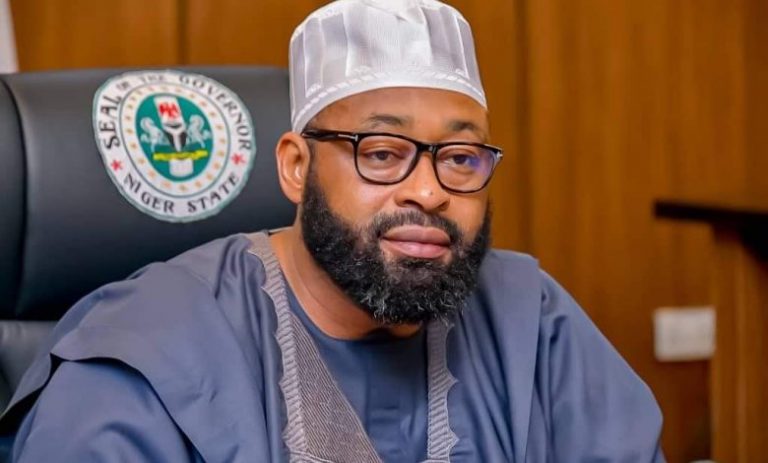Daniel Otera
As Niger State battles one of its worst natural disasters in decades, Governor Umar Bago has suspended all traditional Eid-el-Kabir celebrations, including the iconic Durbar and Hawan Bariki festivities, across the state.
The decision comes in the wake of a catastrophic flood in Mokwa Local Government Area that has claimed over 200 lives, displaced 3,018 residents, and submerged key infrastructure.
A statement signed by the Secretary to the State Government, Abubakar Usman, noted that the directive to halt public Sallah events was issued as “a mark of respect” for victims of the flood and to enable a state-wide period of mourning and reflection.
“The Mokwa flood, described as one of the worst in decades, has left families bereaved, houses and livelihoods destroyed,” the statement read.
While Eid-el-Kabir is typically marked in Niger with vibrant horseback parades and cultural processions, especially the Durbar ceremonies celebrated in places like Minna and Bida the administration has opted for a low-key observance, asking citizens to commemorate the sacred occasion with empathy and prayers for affected communities.
According to preliminary assessments compiled from emergency reports and local government updates, the Mokwa flood has resulted in over 200 fatalities, with at least 503 households affected. More than 3,018 residents have been displaced, having lost their homes or means of livelihood. In addition to the human toll, three major bridges were destroyed, severing key access routes and complicating efforts to deliver humanitarian aid to the isolated communities.
The flood, which struck on May 29, followed heavy rainfall and the overflow of the River Kaduna tributary. Satellite imagery from the region shows that the swollen riverbanks inundated large swathes of farmland and residential settlements.
The National Emergency Management Agency (NEMA) has not yet released a comprehensive impact assessment, but disaster relief tracking shows that Mokwa now ranks among the top five LGAs in Nigeria hit by environmental emergencies in 2025.
But experts had long warned about this scenario. According to the 2025 Annual Flood Outlook released by the Nigeria Hydrological Services Agency (NIHSA) in April, at least 19 Local Government Areas in Niger State, including Mokwa, were classified as high-risk flood zones.
The report, which was cited by the Federal Government and published in Vanguard, projected that over 1,249 communities across 30 states and the FCT could experience severe flooding during the 2025 rainy season.
Mokwa was specifically flagged due to its location along the River Kaduna tributary and its historical vulnerability to water surges.

This risk classification places Niger among the top flood-prone states in the country, raising questions about the adequacy of preventive measures and early warning systems in the affected regions.
Flooding remains a recurring nightmare for Niger State.
In September 2024 alone, over 4,255 people were displaced across the state following days of torrential rainfall and river overflows, according to the International Organization for Migration (IOM).
The disaster, which affected communities in Mokwa, Lavun, and parts of Agaie, also destroyed hundreds of homes and farmlands, compounding the state’s vulnerability to seasonal climate shocks.
The suspension of the Durbar, a cultural fixture during Eid, marks a rare moment in Niger’s history when tradition is set aside for collective mourning. The Durbar, especially in Bida and Minna emirates, typically draws thousands and symbolises northern Nigeria’s rich Islamic heritage and royal traditions.
This year, however, community leaders and local organisers were directed to cancel parades, royal horseback rides, and mass gatherings, with emphasis placed on personal reflection, charity, and community prayer.
Governor Bago has assured citizens of ongoing relief efforts and long-term rebuilding.
However, experts have repeatedly warned that the frequency and intensity of floods in northern Nigeria are likely to increase due to poor urban planning, blocked waterways, and climate variability.
As Niger enters the heart of the rainy season, disaster management agencies face the difficult task of reaching isolated communities, restoring infrastructure, and preventing the spread of waterborne diseases among the displaced.
According to the Internal Displacement Monitoring Centre (IDMC) and the 2025 Nigeria Humanitarian Needs and Response Plan by the United Nations Office for the Coordination of Humanitarian Affairs (OCHA), Niger State is among the Nigerian states increasingly affected by environment-related displacement, particularly flooding.
While Borno remains the epicentre of conflict-induced displacement, states like Niger and Bayelsa have recorded surges in displacement due to natural disasters such as floods and erosion.
With the Eid celebration now shadowed by grief, residents across Niger State are left to reflect on the growing toll of extreme weather and inadequate disaster preparedness.

